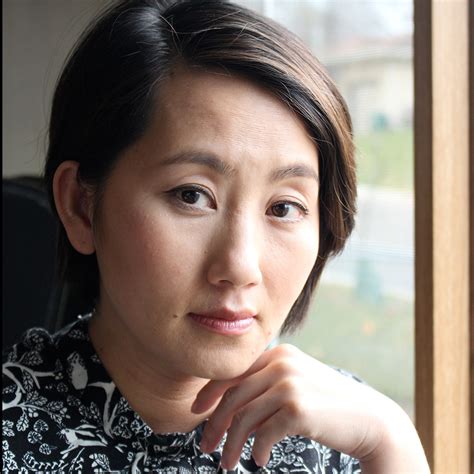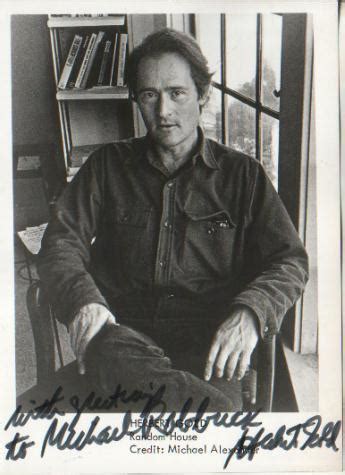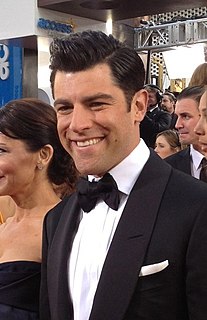A Quote by Quentin Tarantino
One of the things about writing a novel is you can do it any way you want. It's your voice that's important and I see absolutely no reason why a screenplay can't be the same. It makes it a hell of a lot easier when you're the writer and the director.
Related Quotes
I've been thinking a lot about why it was so important to me to do The Idiot as a novel, and not a memoir. One reason is the great love of novels that I keep droning on about. I've always loved reading novels. I've wanted to write novels since I was little. I started my first novel when I was seven.I don't have the same connection to memoir or nonfiction or essays. Writing nonfiction makes me feel a little bit as if I'm producing a product I don't consume - it's a really alienating feeling.
Love is the reason why my mother and father stick together in a hard life when they might each have an easier one apart; love is the reason why you choose a life with someone, and you don't turn back although your heart cries sometimes and your children see you cry and you wish out loud that things were easier. Love is getting up each day and fighting the same fight only to sleep that night in the same bed beside the same person because long ago, when you were younger and you did not see so clearly, you had chosen them.
When I started writing short stories, I thought I was writing a novel. I had like 60 or 70 pages. And what I realized was that I don't write inner monologue. I don't want to talk about what somebody is thinking or feeling. I wanted to try to show it in an interesting way. And so what I realized was that I was really writing a screenplay.
If you're writing a book where you want to make a positive truth claim, then you should absolutely call it nonfiction or memoir. If you don't want to make that claim - if that's not what's important to you; if you're more interested in storytelling and interiority and interpersonal relationships than in objective, checkable facts about the world - then why wouldn't you call it a novel, and take advantage of what that gets you, of the extra freedom, of belonging to the tradition of the novel?
As an artist your first loyalty is to your art. Unless this is the case, you're going to be a second-rate artist. I don't mean there's never any overlap. You learn things in one area and bring them into another area. But giving a speech against racism is not the same as writing a novel. The object is very clear in the fight against racism; you have reasons why you're opposed to it. But when you're writing a novel, you don't want the reader to come out of it voting yes or no to some question. Life is more complicated than that. Reality simply consists of different points of view.
I always ask young writers, 'Are you certain you want to be a writer? If you're absolutely sure, then do it.' If you really want to write, writing has to take precedence over everything else, except for taking care of your loved ones. It has to be more important than any possession, more important than fame. We hear about just a few writers who get famous, but most of them don't. It's got to mean more than that.
The average detective story is probably no worse than the average novel, but you never see the average novel. It doesn't get published. The average -- or only slightly above average -- detective story does.... Whereas the good novel is not at all the same kind of book as the bad novel. It is about entirely different things. But the good detective story and the bad detective story are about exactly the same things, and they are about them in very much the same way.
With a novel, you have to have a story. It's much more important to have it matter to the reader what happens to people, and it has to make sense and end in a way that is satisfying. So I spend a lot more time thinking about that. Then the writing itself usually is easier for me, because I know where it's going.
If a writer of prose knows enough about what he is writing about he may omit things that he knows and the reader, if the writer is writing truly enough, will have a feeling of those things as strongly as though the writer had stated them. The dignity of movement of an iceberg is due to only one-eighth of it being above water. A writer who omits things because he does not know them only makes hollow places in his writing.
I can write any kind of novel I want, any time, and sell it, but there's not that many people watching it. Even a low-rated TV show is a couple million more people than read my books. You want to be read, in essence. If you're a television writer, you're a writer and you want people to read your stuff. You're still reaching a bigger audience, that way. That's a philosophical way to look at it.
Writing helps us heal in certain way, but it doesn't make the experience of thinking about writing that occasion any less painful. When you revisit trauma, you don't know what's going to be triggering for you because you don't know how it's connected in your mind. So in the same way when we write something, it doesn't completely resolve the experience for us. It can feel therapeutic, but that's not the reason why I do it. I do it to ask a question, or just to find meaning.
The dream, I think, with any project is it starts with an idea, and then somebody writes it, and the writer hopes that a director comes on and makes this piece of material visual, and both the director and writer hope that they can have actors come in and bring something to it that neither one of them expected, elevating it along the way.






































